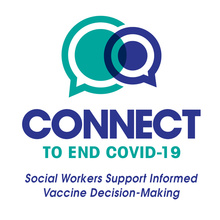
Long COVID conditions do occur in children and adolescents although less frequently than in adults. Young children may struggle to describe the difficulties they are experiencing. For children and adolescents with Long COVID who have conditions affecting physical performance, thinking or concentration, their parents, health care providers and school personnel may request accommodations.
School social workers are trusted messengers in the school, home, and community and can communicate concerns about school performance. They frequently make connections with vulnerable youth through the development and implementation of Individual Education Programs (IEPs) and Behavior Intervention Plans (BIPs). COVID-19 infection (even mild or asymptomatic infection) can result in new mental health disorders, and the exacerbation of pre-existing mental health conditions. Social workers use their unique skill set in building strong relationships with students and families by emphasizing students’ strengths and by supporting self-advocacy. They are not to coerce others to become vaccinated but are to use their professional expertise to support informed decision-making. The Connect to End COVID-19 section on the NASW website provides fact sheets on COVID-19 vaccination and a process to support self-determination through motivational interviewing.
NASW. Practice. Section Infectious Diseases. Retrieved May 11, 2022 from https://www.socialworkers.org/Practice/Infectious-%20Diseases/COVID-19-Vaccine-Confidence
US. Department of Education’s Office for Civil Rights (OCR) and the Office of Special Education and Rehabilitative Services (OSERS).(2021, July). Long COVID in Children and Adolescents: U.S. Department of Education’s Office for Civil Rights (OCR) and the Office of Special Education and Rehabilitative Services (OSERS)’s Resource to Support Children, Students, Educators, School Service Providers and Families. https://www2.ed.gov/about/offices/list/ocr/docs/ocr-factsheet-504-20210726.pdf